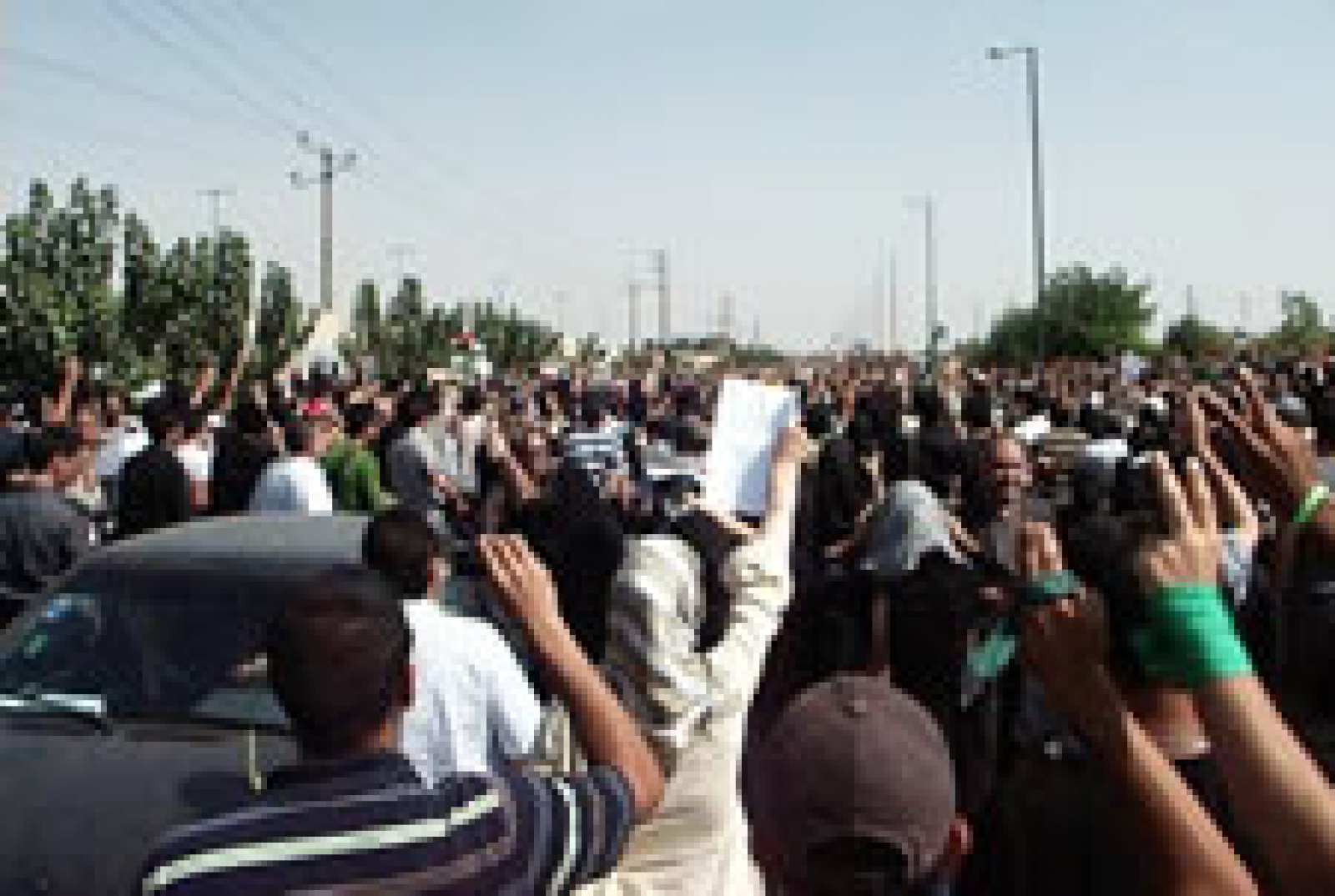
By Elizabeth Spiro Clark
Millions of Iranians reacted with outrage to the June 12 election that has returned President Mahmoud Ahmadinejad to power. In the days that followed, massive numbers turned out in the streets to protest the election results that they believe were determined by fiat of the Supreme Leader Ali Khamenei and not by Iranian voters. Some seven weeks later, protestors have not retreated, even in the face of brutal repression.
Formidable criticism of the Supreme Leader’s handling of the election and its aftermath has expectedly come from defeated candidates Mir-Hossein Mousavi and Mehdi Karroubi. However, other regime elites with impeccable revolutionary credentials have increasingly spoken out in the past two weeks.
During Friday prayer services on July 17, former President Ali Akbar Hashemi Rafsanjani accused governing authorities of breaking the trust of the Iranian people. Three days later, reformist clerics, led by former President Mohammad Khatami, called for a referendum on the election – with independent monitors to verify the results. In increasingly defiant rhetoric, opposition leaders have characterized the government’s post-election crackdown as “reminiscent of the oppressive rule of the Shah” and accused the government of violating the precepts of the founder of the Islamic Republic Ayatollah Ruhollah Khomeini.
Among the grassroots, protestors continue to defy bans on demonstrations. On July 30, opposition supporters gathered at Grand Mosala, Vali Asr square and Behesht-e-Zahra cemetery in Tehran to commemorate those killed in the aftermath of the election. Protestors were confronted by riot police with tear gas and batons – a continuation of the government’s violent crackdown.
Whether the authorities will ultimately succeed in putting down the opposition and silencing nighttime shouts of “death to the dictator” is still not clear. One outcome of the election, however, is clear. Rather than Ahmadinejad, the big winner of the June 12 election is the idea that the legitimacy of an election must be judged against internationally agreed norms and standards. President Barack Obama called on the Iranian government to respect the “universal rights” of freedom of assembly and speech and called upon Iran to “choose the path of international norms and principles.” Those norms and principles increasingly encompass elections standards.
Emphasizing international norms and standards is not a textbook exercise, but an operational strategy for Iranians eager to maintain opposition momentum. As democracy and human rights advocate Mariam Memarsadeghi told a Washington audience on July 29, “we want to focus on the unfree election; that is what is galvanizing us.” The opposition understands that the legitimacy of the Iranian government has been undermined by its performance during the election.
The Iranian election did not come close to meeting international standards. Election irregularities and flaws have been amply chronicled – the turning away of candidate representatives, an opaque vote counting process, lack of ballot security, the premature release of vote results, anomalies in the results, including opposition candidates failing to carry their home districts, and so on. There were no independent domestic observers in Iran and no international observers.
The Iranian authorities tried to stop the erosion of their legitimacy early on by offering to set up a committee to conduct a limited review of the election. Mousavi and Karroubi rejected the offer on the grounds that any review by an official government body "cannot attract people's trust and convince public opinion about the results." The authorities failed to realize that no one would believe their investigation of irregularities without independent monitoring. The old rules no longer applied. That is why when Iranian human rights activist and Nobel Peace Prize winner Shirin Ebadi demanded an election rerun, she coupled it with a demand that it be done under the supervision of the United Nations.
The Iranian regime has dug itself into a “bad election” ditch. The Supreme Leader has consistently lauded and promoted elections as demonstrations of popular support for the government and criticized those who would characterize elections as predetermined selections. The virtues of the Islamic revolution have often been attached to calls for fair and honest elections, and Khamenei has spoken out against what he views as international attempts to manipulate election outcomes. As such, the government has made the subject of elections and their credibility an acceptable issue for public discussion and that dynamic has taken on a life of its own.
In a dramatic contrast to Iran, Lebanon, only five days prior to the Iranian election, held parliamentary elections under a new electoral law that took giant steps toward meeting international standards. It set up a commission to oversee new regulations of the media and campaign finance and a Constitutional Court to hear election related complaints, among other reforms. Two hundred and fifty international observers monitored the elections, including U.S. delegations fielded by the Carter Center, led by former President Jimmy Carter, and the National Democratic Institute, led by former Senator John Sununu and Missouri Secretary of State Robin Carnahan. No significant doubts have been cast on the accuracy of Lebanon’s vote count, which saw a surprise victory by a pro-Western electoral bloc and the acceptance of that result by the Iran-allied Hezbollah party.
Core election standards have been set down in international agreements and an array of international, regional and national groups are refining and extending these standards, the acceptance of which is growing. Management of elections by an independent domestic election authority is close to being such a core standard, as is the willingness of governments to invite international observers and accredit domestic observers. If Iran is going to claim democratic legitimacy, even partial, it is going to have to “choose the path of international norms and principles” President Obama called on Iran to follow.
Elizabeth Spiro Clark is a retired career Foreign Service officer. She was a member of the National Democratic Institute delegation to observe the June 7 elections in Lebanon.
–
Published on August 4, 2009


